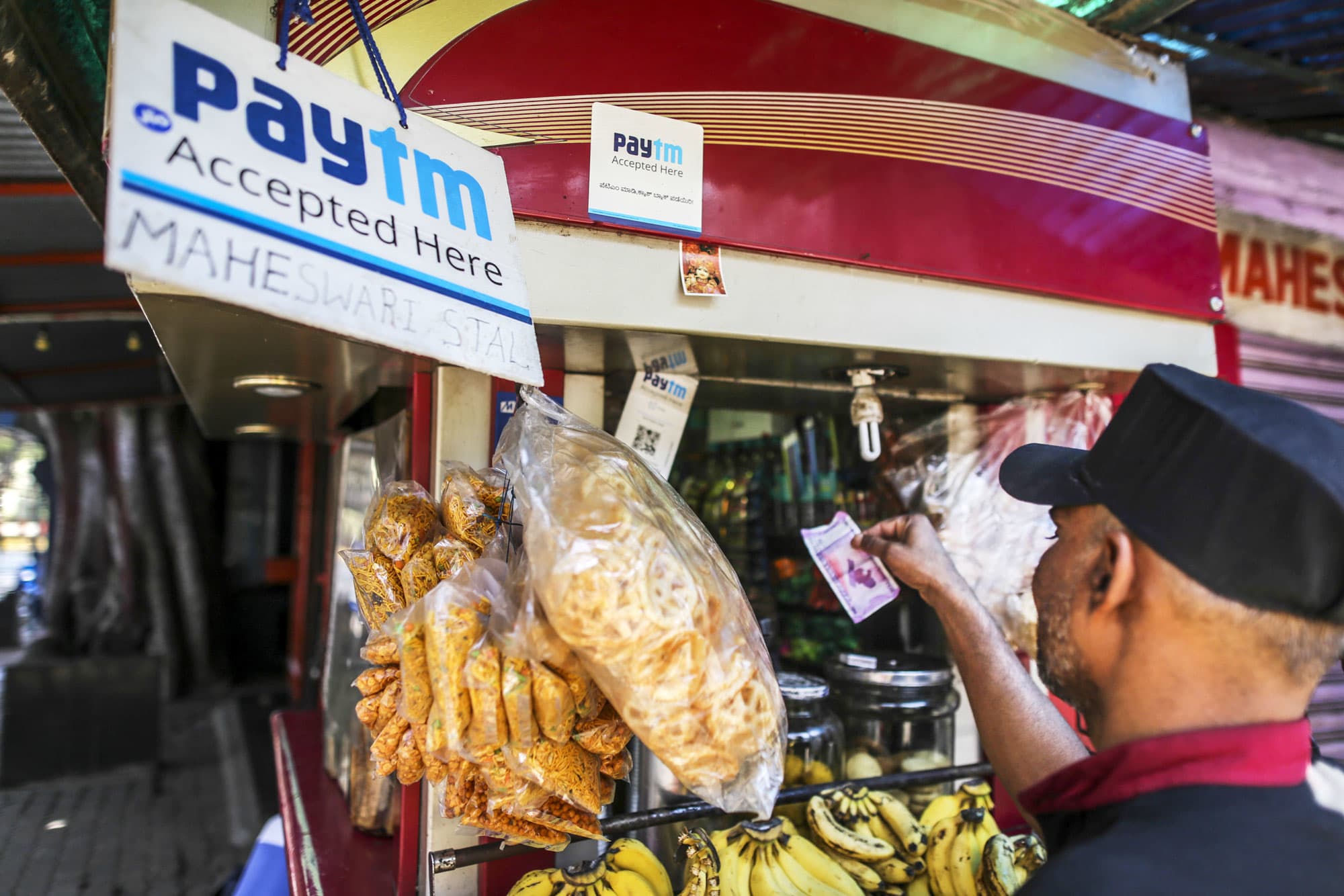Payments giant Paytm says Google’s Android monopoly is of grave concern to Indian start-ups

SINGAPORE — Google’s monopoly over Android — the mobile operating system used by most smartphones around the world — is a major concern for Indian start-ups, a top executive at online payments firm Paytm said Tuesday.
Paytm has become a ubiquitous name in India’s digital payments sector. The mobile app is used by millions of Indians to pay for things including utility bills, groceries, recharging mobile connections, or movie tickets. Paytm is also a fully licensed digital bank.
Last Friday, the app was temporarily removed from the Google Play Store. Paytm said the U.S. tech giant told the Indian tech firm its app contained “content that doesn’t comply with (Google’s) Gambling policy.”
On the same day, Google said in a separate blog post it doesn’t allow online casinos or support any unregulated gambling apps that facilitate sports betting. It did not name Paytm, but Reuters reported that the U.S. tech giant confirmed the app’s removal due to policy violations.
Paytm had to remove a cashback campaign before the app was restored on the Google Play Store about eight hours later, according to Madhur Deora, president of Paytm.
“I think we are focused on some of the bigger questions that this raises, which is that effectively, Google has a monopoly on the Android ecosystem in India, which is 95% of phone users. And they can basically decide what policies they want to make and how arbitrarily they want to enforce them,” Deora said on CNBC’s “Street Signs Asia.”
“That’s a big sword that is hanging over the necks of all Indian start-ups who are innovating for India, that Google can one day decide that they no longer like your app and effectively remove access to it,” he added.
Google did not immediately respond to CNBC’s requests for comments on Deora’s assertions.
A customer uses an Indian Rupee banknote to pay for a purchase as a sign for PayTM online payment method is displayed at a stall selling snacks in Bengaluru, India.
Dhiraj Singh | Bloomberg | Getty Images
Deora also claimed there were “clear conflicts of interest” and that Google’s own apps compete in areas like cloud storage, maps, email, payments and commerce with others that are listed on the Play Store.
“We just assumed that Google is going to have good governance and they are not going to be driven by commercial interest, they are only going to be purely driven by interests of the ecosystem. While again and again and again, they have shown that is not the case,” he said.
Within guidelines
In a blog post explaining the incident, Paytm said it launched a campaign on Sept. 11 where users could collect cricket stickers and scratch cards to win cashbacks if they made bill payments or transferred money using its app.
“We were forced to comply with Google’s mandate of removing our UPI cashback offer and scratch cards to get re-listed,” Paytm said in the post. The Indian company insisted it operated “within guidelines, as well as all laws of the land” and said that similar cashback campaigns were being offered by Google’s own payments app, Google Pay.
“Presumably, such cashback campaigns of Google Pay are not in breach of Play Store policies, or maybe they are, but a different set of rules apply to Google’s own apps,” Paytm wrote in its blog post.
News site TechCrunch reported that two people familiar with the matter said Paytm had repeatedly violated Play Store’s policies.
Google and Paytm are currently competing to acquire more users in India’s vast digital payments market. A shift to online transactions was accelerated since 2016, after India demonetized and replaced some of its large-denomination bank notes that led to a temporary currency shortage. That pushed many small businesses to adopt digital payment alternatives such as Paytm.
Deora told CNBC that Paytm could take Google on in the payments sector and win — if it was a level playing field.
“But it gets a little bit trickier if they are going to use their market dominance to promote certain apps versus other apps and if they are going to be, effectively, hostile to certain apps and if they are going to have policies which are not going to be governed by the laws of the country. Then it’s a whole different game,” he said, adding that stakeholders should figure out what the right balance should be.
The U.S. tech giant is also facing an antitrust probe in India. Reuters reported in late May that the country’s antitrust body was looking into allegations that Google was abusing its market position to unfairly promote its Google Pay app in India. Two months later in July, Google stepped up its commitment to India by announcing it will spend around $10 billion in the country over the next five to seven years.
India’s importance
India is a lucrative market for many tech companies because it has a large and relatively tech savvy young population that’s just coming online, many of them through smartphones for the first time.
As such, tech companies have poured billions of dollars into their India operations — like Amazon — or have acquired or backed local Indian start-ups. U.S. tech companies, specifically, are facing an opportunity to strengthen their positions in India after the government earlier this year introduced restrictions around investments from Chinese companies, many of which have backed the country’s tech start-ups.
In fact, Paytm’s owner One97 Communications, which has a valuation of $16 billion, is backed by Chinese e-commerce giant Alibaba.
Prakash Singh | AFP | Getty Images
Google’s showdown with Paytm resonates with a similar faceoff between Apple’s App Store and Epic Games, the maker of the highly popular Fortnite game.
Apple and Epic Games are caught in a legal battle which began last month when game-maker published a version of Fortnite to the App Store that included a method for users to pay for in-game content without giving Apple its usual 30% cut. Apple remove the app from the App Store and Epic Games sued the tech giant later that day. Subsequently, Apple filed a response and counterclaims alleging a breach of contract and is reportedly seeking an unspecified amount in damages.
Paytm’s founder Vijay Shekhar Sharma was asked by local media if he would take legal recourse against Google. He told Indian newspaper, The Economic Times, that all options were open.
